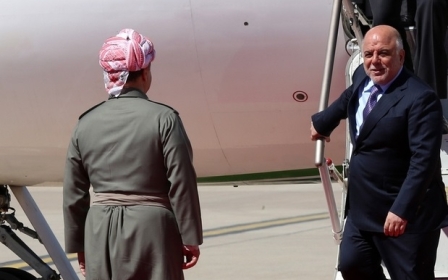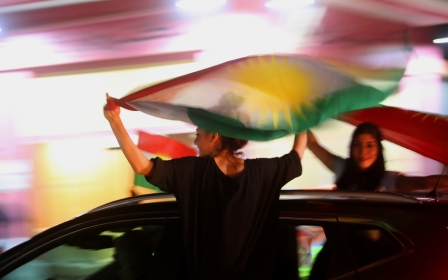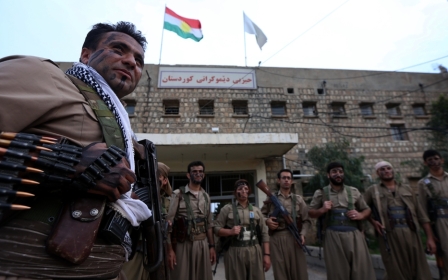Attack on Iranian Kurdish rebel group's headquarters in Iraq kills 11

At least 11 members of an Iranian Kurdish rebel group have been killed in a rocket attack on their headquarters in Iraq's autonomous Kurdish region, officials from the group have said.
The Kurdistan Democratic Party of Iran (KDPI) has carried out sporadic attacks inside Iran from its rear-bases in Iraq and is blacklisted as a "terrorist" group by Tehran.
The leftist organisation was holding a meeting at the time of the attack on Saturday, one of its officials told AFP news agency on condition of anonymity. He blamed the attack on Tehran.
"Eleven KDPI members were killed and 30 wounded by Katyusha rockets fired on their headquarters in Koysinjaq," Kamran Abbas, director of the city's hospital, told AFP.
Koysinjaq is about 60km east of the autonomous Kurdish region's capital Erbil.
Abbas said the party's secretary general and his predecessor were among the wounded.
The KDPI is Iran's oldest Kurdish movement, and has seen several of its leaders assassinated by Tehran in the past.
Iranian security forces have also carried out repeated operations against KDPI bases in the mountainous terrain along the border.
Executions
Meanwhile, Iran executed three alleged Kurdish separatists on Saturday, local media reported, despite criticism by the United Nations that at least one had been tortured in prison.
Ramin Hossein Panahi, Zaniar Moradi and Loghman Moradi were all executed, according to the conservative Fars news agency.
It said Panahi had planned to bomb a rally in Iran's Kurdish province last June.
Zaniar and Loghman Moradi were accused of membership in an unnamed "terrorist separatist group" and of killing four people, including the son of a religious leader in the Kurdish city of Mariwan.
Panahi was accused of membership in Komala, which has been waging a long-running separatist insurgency in the Kurdish region of Iran from bases across the border in Iraq.
He was sentenced to death in April, drawing criticism from UN human rights experts, who said his execution "would be unconscionable".
"We are deeply disturbed by reports that Mr Panahi has suffered human rights violations before and during his trial, including incommunicado detention, torture and ill-treatment, and denial of access to a lawyer and adequate medical care," they said in a report at the time.
The experts pointed to reports that Panahi had been denied medical care for injuries suffered during his imprisonment, including from reported beating with cables.
He had also reportedly started a hunger strike at the beginning of this year in the Rajaei-Shahr prison in Karaj, near Tehran.
New MEE newsletter: Jerusalem Dispatch
Sign up to get the latest insights and analysis on Israel-Palestine, alongside Turkey Unpacked and other MEE newsletters
Middle East Eye delivers independent and unrivalled coverage and analysis of the Middle East, North Africa and beyond. To learn more about republishing this content and the associated fees, please fill out this form. More about MEE can be found here.




